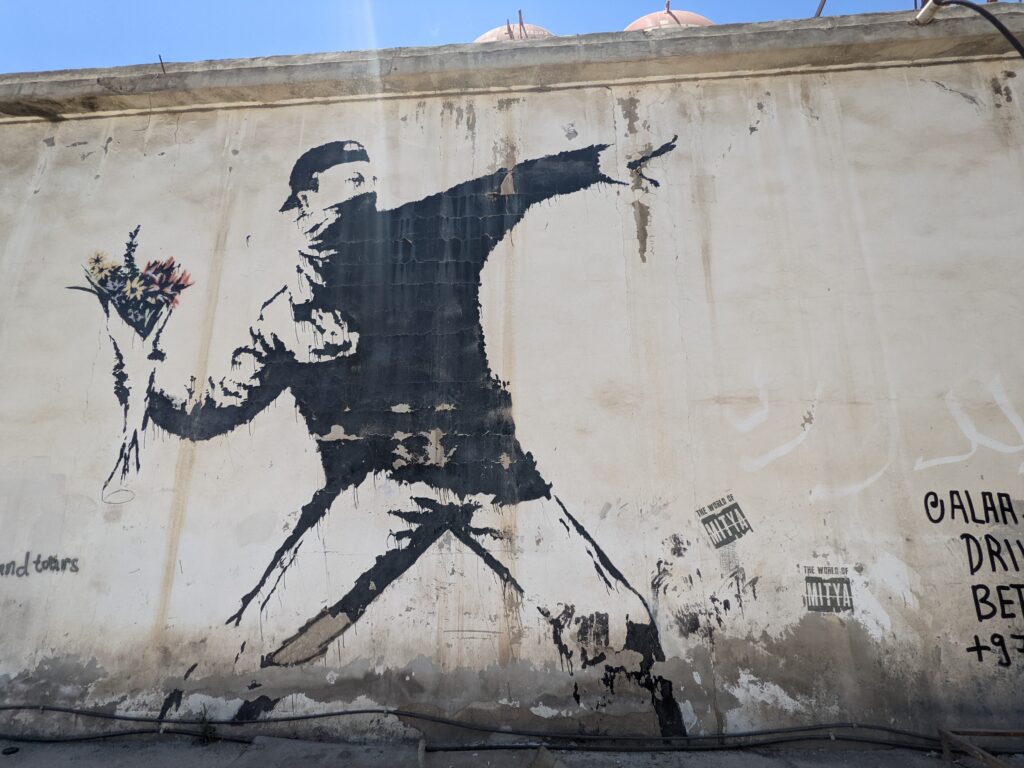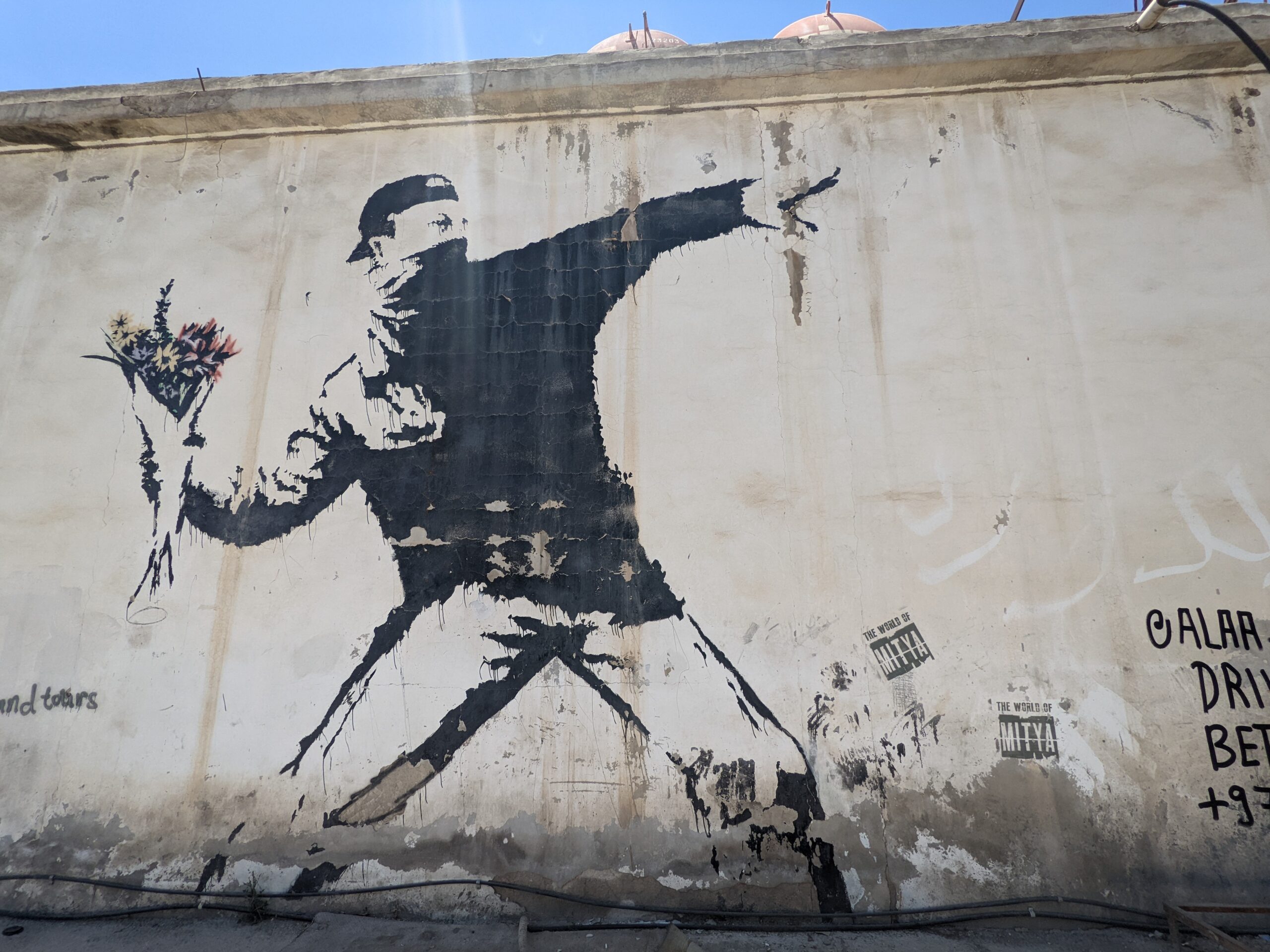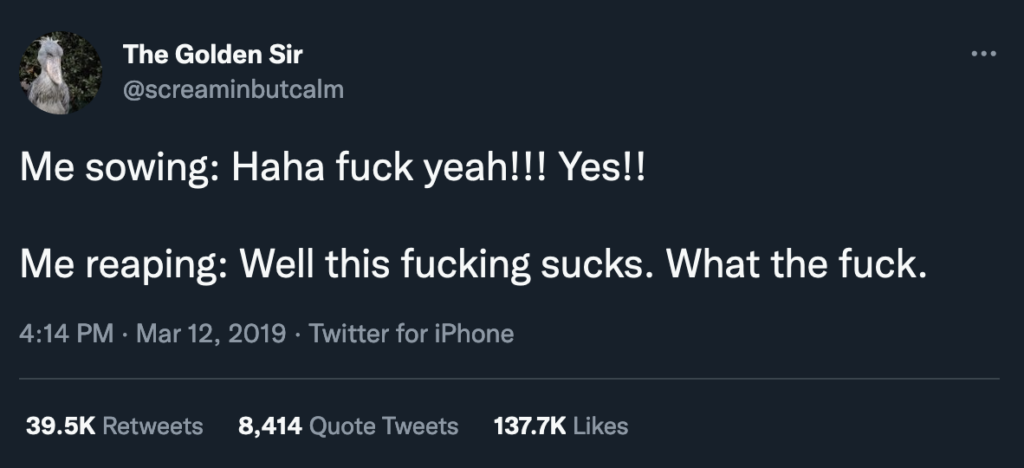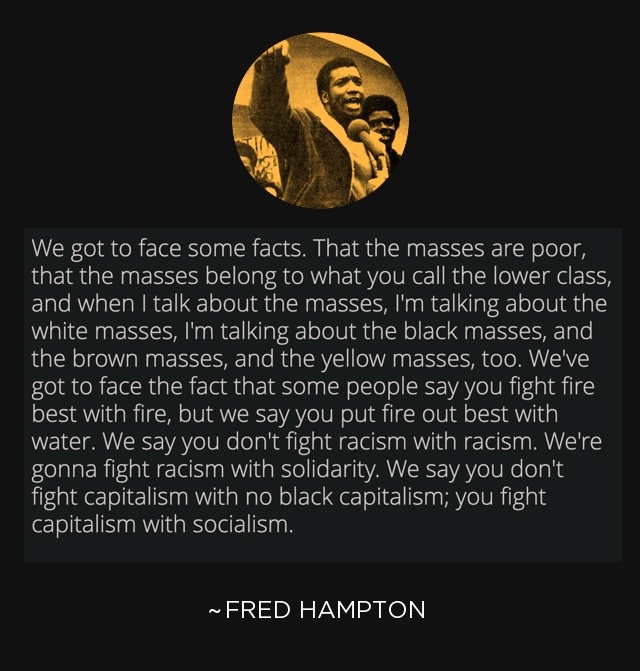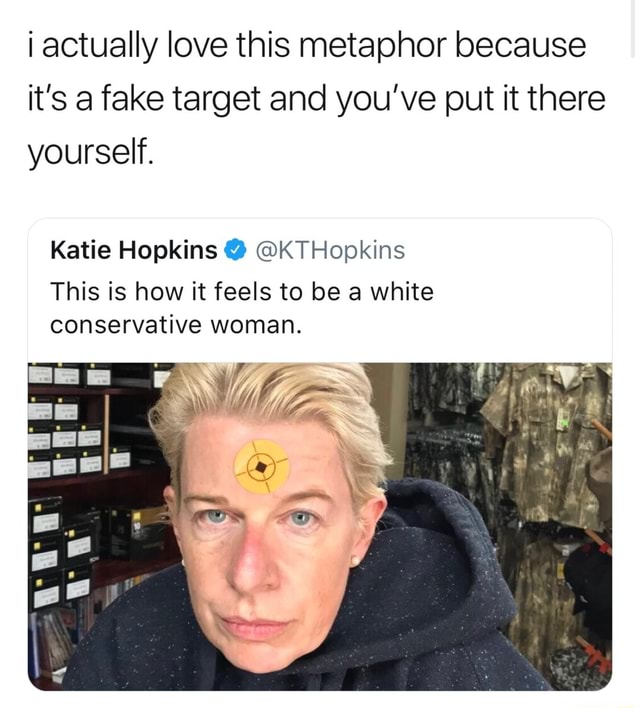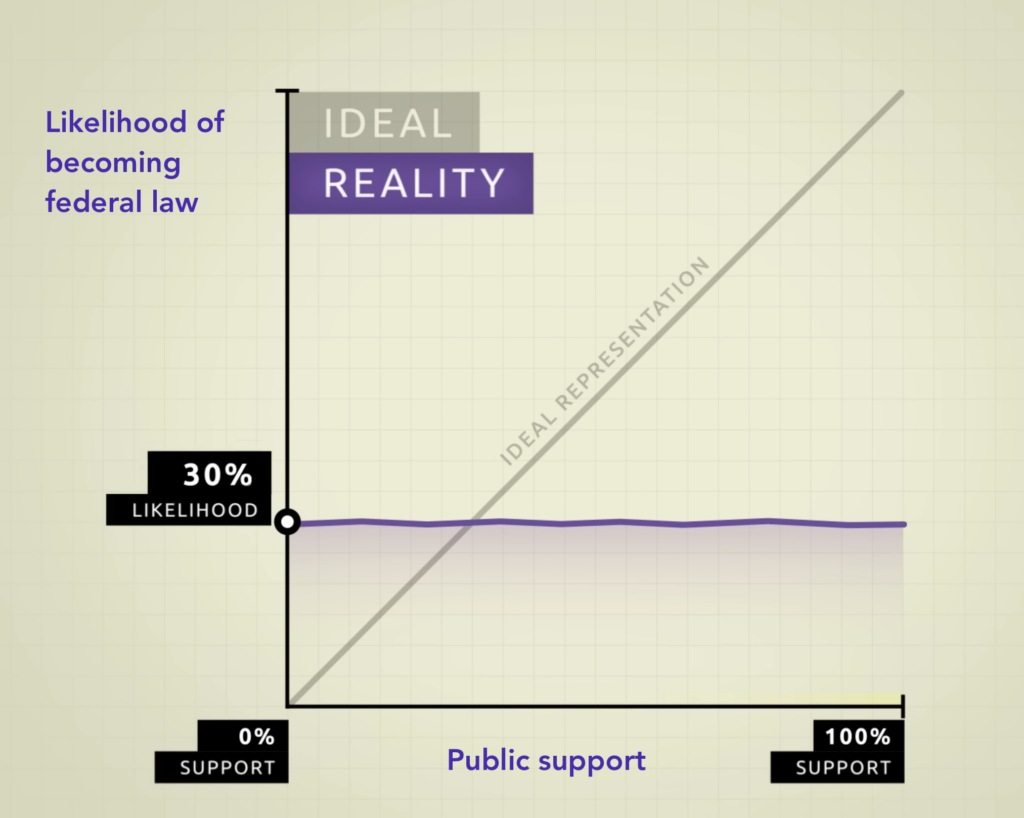The passage of time gives many people space to believe that the past could never be repeated, but callbacks are inevitable. Even our genes can lie dormant for a few generations and re-emerge without warning. Modern medicine has commuted the death sentences of some congenital diseases, and now my hope is that different ideologies can do the same with deadly imperialism.
Growing up in the center of an empire made it clear how banal evil really is. Every period of history has people debating on what to have for dinner, whether it be under feast, famine, or fire. Under every megalomaniac dictator there were people who were just following orders. For better and for worse, the United States is in very charted territory, and who better to map it out than your favorite traveler?
Further reading: Umberto Eco has a novella called
How to Spot a Fascistthat’s a great overview of this.
.
reckoning with our colonial beginnings
The United States is a direct result of European colonial thinking. In the days of expansive European colonies, the goal was always to have more. This mindset is obvious in the United States, but it’s also re-surging across Europe. The quest to be on top didn’t stop with Franco, Mussolini, Salazar or Hitler. As it turns out, current and former empires alike still have some foundational beliefs that they deserve more and owe nothing to the world they have pillaged.
As harsh as this judgement may seem, modern economics supports this view. Economists group people, materials, and resources under capital, but value is not consistent across capital classes. Value is determined by many factors, only some of which include material and human costs. Costs and value are only loosely related, and businesses are usually trying to optimize for the price people are willing to pay. It’s a system ripe for exploitation down the supply chain and all the way to the consumer.
In October, I went more into the colonial origins of modern capitalism and how it divorces many people from their humanity. The question of how much something or someone is worth goes beyond a dollar value, or at least it should. Under existing measures of “success” and development, a country/company/person must constantly grow in revenue (or GDP for a country.) How this growth is achieved is irrelevant, and that ambivalence is where atrocities thrive.
Endless growth is an unnatural concept—even the universe does not grow endlessly. The only thing that grows endlessly is cancer, and that too kills. The empire insulates many of us from the cost of its maintenance, but someone pays the price. The idea that it’s okay as long as it’s far enough away ignores that nothing exists in a vacuum. Fascism is a disease that cannot be contained, and has been in practice militarily, economically, domestically, and abroad. The United States is reaping what they’ve been sowing for centuries, from Manifest Destiny to the military industrial complex.
.
individualism as a replacement for the social contract
In many ways, systems don’t really change, they evolve to survive. We were born into a world where we competed for education, housing, jobs, and even pilates classes. From a young age we learn to see the people around us as competition, as people to beat rather than to join. In fact, we consider joining them to be the consolation prize. Many people get caught up in the beating the other players rather than winning the game, and that is our grand folly as a society.
Rather than question systems designed to benefit a few, we often get caught up in trying to be one of the few. We lose sight of community and collective power in pursuit of empty promises of the American Dream. This decrease in empathy and the social contract feeds the mis-characterization of systemic failures as personal responsibilities. It also serves to maintain hierarchies built into the capitalgorithm.
Dividing people makes them easier to control. Unions exist(ed) because one employee will never be able to negotiate with the CEO, but a group of them can. People might be selfish, but if what’s best for you is best for me, it only makes sense to combine efforts and fight together for something better. The division comes from propaganda that only some of us deserve that.
.
dividing to conquer
I think people operate under the assumption that they’re always working in their own best interest—they just don’t know what that is. We can pretend to be islands, but our lives and perspectives are shaped by the people and environment around us. Our relationships, be they within our family or with our planet, are paramount because we exist only in relation to others. There is no defining who we are or what we believe without some frame of reference.
The necessity of relationships is why isolation is such an effective tactic to getting someone to believe in anything. At present, isolations usually begin with distractions. It’s worth nothing that where distractions don’t exist, they can be created. The increasing complexities in life aren’t because life is more complicated, it’s because complexity is a distraction, and a profitable one at that.
As much as I love to grandstand about societal ideals and ailments, I am aware that perfection is a myth and suffering is inevitable and relative. Life implies the existence of problems, and the best realistic future is not one without problems, but one where we’re equipped to address them. Every problem is an opportunity to learn, change, and influence—and those best happen in communities.
.
the power of legitimate concern
Populist leaders often arise during times of crisis, when people are at a loss and looking for a win. Embedded and systemic problems often require time and persistence to resolve, but the societal tension yearns for quick release. Bad actors often direct this momentum at visible targets and “culture war” issues, which also usually serve to divide us.
My time in middle America taught me that many (but not all) conservatives have legitimate concerns buried underneath the bigotry. Under our current individualist framework, we can group most of these concerns under family, faith, and stability. Our most important relationships, our place in this life, and the ability to rely on those things are undoubtedly important, and a threat to one of them is a threat to them all.
As it turns out, identifying threats and root-causing them are entirely different skills. Human pattern recognition evolved to recognize problems and inconsistencies, but not necessarily diagnose them. This gap is where misinformation and distractions run amok, and they work towards two main objectives:
1. Reduce time spent towards changing the system
2. Obfuscate intent and impact of the powers that be
There are legitimate threats to our livelihoods and societal structures, and I can promise you with 100% certainty that none of them are transgender. People are far more likely to lose their children to measles or a denied healthcare claim than a drag queen. Real people are so much easier to see than healthcare systems or epidemics, and that’s why they’re so much easier to blame.
.
invisible forces
The will of the people and the invisible hand of the market are often at odds with each other. When money talks, it often screams louder than the voice of the people. The voice of capital is why billionaires are surrounded by sycophants and why American policies do not affect the will of the people. In a democracy, all people should have an equal voice, and money corrupts said voice; as such, the only way to preserve democracy is wealth redistribution.
Much propaganda dedicates itself to reconstructing the relationship between money and people. Ultimately, we do not need much in this life, but marketing corrupts that message. Attention is a riverbed carved by the ebbing and flowing of the ideas we hear and see. A steady stream of images of unsustainable wealth—and that wealth being the key to fulfillment—is bound to change our psyche. This is one of many issues with Instagram.
“Poverty exists not because we cannot shelter the poor, but because we cannot satisfy the rich.”
In theory, there exists a point where we do not need anymore. It should be enough to rest and relax in security for the rest of your life, but the ceiling does not seem to exist for the ultra-wealthy. Side hustles when you’re a multi-millionaire are insane, please touch grass. Our current system encourages endless growth above all else and through whatever means possible. Luxurious comforts and the occasional philanthropic PR stunt mask the violence of ultra-wealth, but its victims still bleed.
People often like to look to “good billionaires” as goals to strive for, but every billionaire has contributed—either directly or indirectly—to suffering in this world. Bill Gates sourced conflict materials and contributed directly to the destabilization of the DRC. Rihanna’s Fenty allegedly has used child labor to produce lingerie and makeup. In a world where so many live in poverty, to hoard more money than you can spend in this life is violent. Money drowns and suffocates the voice of the people. There are no ethical billionaires.
.
divorcing intent from impact
In the void between ourselves and community, other people and businesses have space to sell an image of themselves. Our spread attention means we have less brainpower to look at people holistically, and generally keep our evaluations surface-level. Pop culture encourages us to both be and see people in specific boxes—be it goth, punk, cottage-core, or whatever micro-trend influencers are peddling. This allows people across all classes to divorce their impact from their image/intention, and this divorce is very intentional.
The Good Place quantified how our daily lives have numerous negative and unintended impacts, but any holistic analysis would lead to the same conclusion. This is why it’s better for corporations that we avoid any analysis at all, both of their products and of the larger system they perpetuate. We focus on our individual intentions and ignore the realities they encourage because we’re good people. We also focus on our good acts, and assume they cancel out our negative impact, which they do not.
Of course, reality is rarely so black and white. As of 2025, I host this website on a server that’s marginally warming the planet. Smartphones and their conflict materials are necessities in this world. Still, we have better paths forward. Understanding that there’s no ethical consumption doesn’t preclude us from harm reduction.
.
efficiently organizing efforts
Paralyzation is a rational response to the onslaught of problems scrolling across our screens every moment. Only caring about your immediate self/family/community is a rational response. Rational responses are not always the best responses though. Our impulse reactions to issues need not dictate our overall response, and self-compassion is a vital component to resolution.
A globalized world should mean more communal responsibility, not less. That’s not to say we have to kill ourselves with worry with every problem plaguing the world, but there can and should be levels to our care. We have to evaluate issues based on severity, proximity, and our own power to fix them. Then we have to organize our efforts individually and then communally to affect change at every level. This IG reel has some very realistic ideas of what that looks like.
We took many small steps to arrive where we are today, and we can take different steps to arrive at a better tomorrow. Time always moving forward means that every push in the right direction brings us closer to a better future. Revolution is also an option, but any action is better than inaction.
.
closing thoughts
Our responsibility as is not to slow the descent into collapse, but to change the course. There are plenty of options which are the lesser of evils, and at an individual level I think this is the best we can ask for. We can also be slow forces for positive change, starting at the local levels of community and government. The ubiquity of these issues just means we have more opportunities to improve our lives and society. It’s not like we’re here to do anything else.
Something else to note for people debating the “far-left” vs. the far-right: literally nothing improves for the general population under far right governments. Power centralizes for a minority of people while the welfare of others is left to private oligarchs. Fascist/far-right governments are flashes in the pan of policy that burn all but a few who end up Nuremberged in any just successive government. Far-left governments—despite their faults—have shown marked improvements in literacy, healthcare, and education. While this may not be true for all leftist governments, we at least have historical data points we can point to. This is far more than we can say for the far-right. If we’re judging sides of the spectrum by their extremes, there is a clear winner.
This is a lot of text for some very big ideas, but I can some it up as: shit happens, but better things are possible with community!
